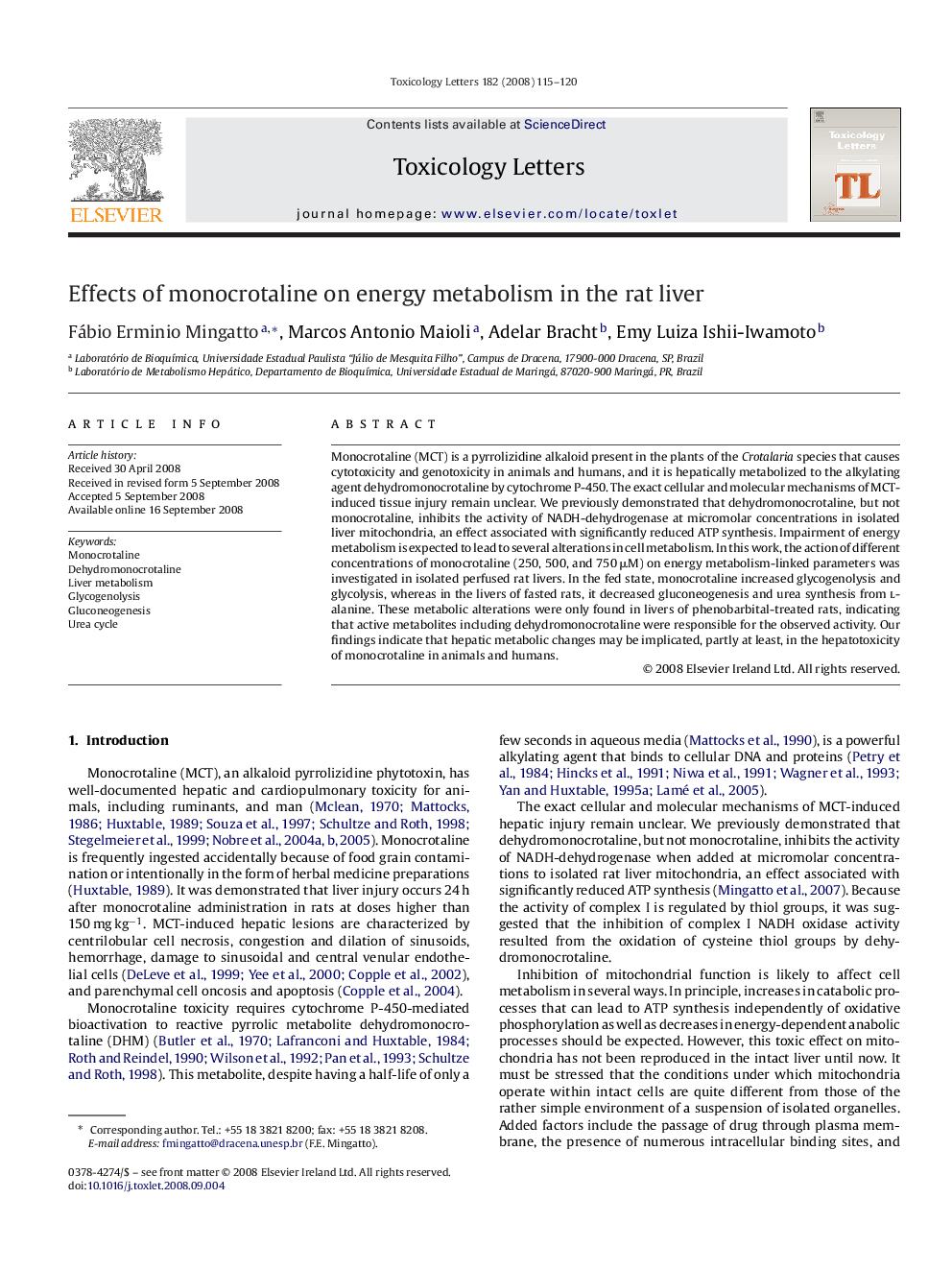| Article ID | Journal | Published Year | Pages | File Type |
|---|---|---|---|---|
| 2601365 | Toxicology Letters | 2008 | 6 Pages |
Monocrotaline (MCT) is a pyrrolizidine alkaloid present in the plants of the Crotalaria species that causes cytotoxicity and genotoxicity in animals and humans, and it is hepatically metabolized to the alkylating agent dehydromonocrotaline by cytochrome P-450. The exact cellular and molecular mechanisms of MCT-induced tissue injury remain unclear. We previously demonstrated that dehydromonocrotaline, but not monocrotaline, inhibits the activity of NADH-dehydrogenase at micromolar concentrations in isolated liver mitochondria, an effect associated with significantly reduced ATP synthesis. Impairment of energy metabolism is expected to lead to several alterations in cell metabolism. In this work, the action of different concentrations of monocrotaline (250, 500, and 750 μM) on energy metabolism-linked parameters was investigated in isolated perfused rat livers. In the fed state, monocrotaline increased glycogenolysis and glycolysis, whereas in the livers of fasted rats, it decreased gluconeogenesis and urea synthesis from l-alanine. These metabolic alterations were only found in livers of phenobarbital-treated rats, indicating that active metabolites including dehydromonocrotaline were responsible for the observed activity. Our findings indicate that hepatic metabolic changes may be implicated, partly at least, in the hepatotoxicity of monocrotaline in animals and humans.
